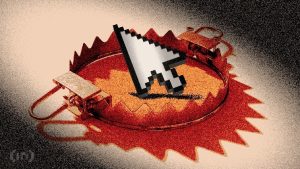A Professional’s Personal Struggle: The Human Cost of Scandal
In the ever-evolving landscape of Washington politics and journalism, personal relationships occasionally become public spectacle. Such is the case in a recent controversy involving Health and Human Services Secretary Robert F. Kennedy Jr., journalist Olivia Nuzzi, and her former fiancé Ryan Lizza. What began as private communications has spilled into public discourse, highlighting the human toll when professional and personal boundaries blur. The situation reveals not just a tangled web of alleged inappropriate communications, but also the painful aftermath for those caught in its wake—particularly Lizza, who found himself processing the breakdown of his engagement in a most public and painful manner.
The revelations came to light through Lizza’s recent article, where he details discovering text messages and writings allegedly exchanged between Kennedy and Nuzzi during 2023-2024. According to Lizza’s account, these messages contained explicit sexual content that deeply disturbed him upon discovery. The 51-year-old former Politico journalist expressed both shock and sardonic humor at learning about intimate matters through these exchanges. His decision to share these details publicly appears motivated by news that Nuzzi plans to publish a memoir about her relationship with Kennedy, who is married. This preemptive disclosure represents Lizza’s attempt to reclaim his narrative in a situation where he feels victimized by circumstances beyond his control.
The content of the alleged messages speaks to a concerning dynamic between a high-ranking government official and a journalist. According to Lizza’s account, Kennedy shared explicit writings with Nuzzi that contained graphic sexual imagery and desires. These alleged communications raise serious questions about professional boundaries, particularly given Kennedy’s prominent position as Secretary of Health and Human Services and Nuzzi’s role as a journalist covering politics. The power dynamics at play in such a relationship merit consideration, especially when they involve individuals whose professional responsibilities include public trust and journalistic ethics. While personal relationships are complex, the intersection with professional roles introduces additional layers of ethical consideration.
Beyond the salacious details lies a more human story about trust, betrayal, and the painful dissolution of a long-term relationship. Lizza’s public disclosure reveals a man processing grief and betrayal in real-time. His sardonic tone throughout the article suggests someone using humor as a defense mechanism against profound hurt. The experience of discovering intimate communications between one’s partner and another person represents a deeply personal violation that many can empathize with, regardless of the public figures involved. This aspect of the story transcends political affiliations or professional standings and connects to universal experiences of heartbreak and betrayal. Lizza’s decision to make this pain public speaks to both a desire for vindication and perhaps an attempt at emotional processing.
The situation also highlights how modern technology has transformed infidelity and relationship boundaries. Text messages, emails, and other digital communications create permanent records of interactions that might otherwise remain private. In this case, these digital footprints became evidence that Lizza discovered, forcing him to confront uncomfortable realities about his relationship. The digital trail of communication between Kennedy and Nuzzi demonstrates how technology has changed not only how affairs occur but also how they’re discovered and processed by those affected. In the pre-digital era, such exchanges might have remained private or deniable; today, they often leave indelible evidence that can be particularly painful for betrayed partners to encounter.
As this story continues to unfold, it serves as a reminder that behind political headlines and public scandals are real people experiencing genuine pain. While public figures certainly bear responsibility for their actions—particularly when those actions intersect with their professional duties—the human dimension of such scandals shouldn’t be overlooked. For Lizza, this situation represents not just a news story but a profound personal loss and betrayal. For Kennedy and Nuzzi, whatever the full truth may be, their alleged actions have created ripples affecting not just their own lives and careers but those of others connected to them. As Nuzzi prepares her memoir and the public digests these revelations, perhaps the most important takeaway is compassion for all involved in what is, ultimately, a very human story of flawed decisions and their painful consequences.











